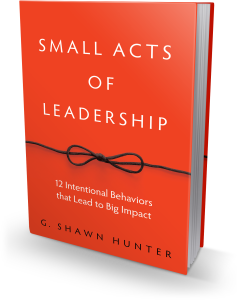Gratitude Is Not About the Past. It Guides Our Future.
We think gratitude is about the past. It’s not. Gratitude feels like an emotion in which we reflect on a past event, or previous moment, or sometimes a specific person, and what they did for us or how they made us feel.
We think about that past place and time and person and feel a sense of appreciation and thankfulness. But gratitude isn’t just a passive, reflective experience. It’s an active driver of what we’re going to do next, how we are going to cooperate with others, treat people around us, and take action.
Gratitude is an emotional driver that guides our future action. Gratitude may be born of a reflective and thoughtful moment, but that emotion is a psychological driver of our own future behavior toward others.
Feeling indebted is not feeling gratitude. Feeling indebted is a feeling of Oh crap, now I have to pay them back, or What a hassle. I guess I have to go rake their leaves now. It’s obligation without the thankfulness. It’s personal demand without the joy.
We feel grateful when we think others have invested in us and we feel a joyful calling to reciprocate. Sociologist Georg Simmel calls gratitude the “moral memory” of humankind. When we feel grateful, we are more willing to act on behalf of someone who helped us, because if we don’t, the relationship dies. That’s the nature of relationships. And we all need relationships in life to thrive.
David DeSteno and his colleagues at Northeastern University wondered how people would behave if they could induce a feeling of gratitude in a laboratory. DeSteno and his team brought pairs of students into his lab – one was an actual research participant, the other person was secretly an actor hired by the lab team.
Sitting side by side, researchers asked both participants to complete a long, boring task on a computer. Just as they were completing the task, the student’s computer was programmed to crash, and the participant lost all of their work. They would often curse or groan in frustration. Meanwhile, the actor happily completed the assignment, pressed a button to submit their work, and prepared to leave.
A researcher would enter the room, see that the computer had crashed, and tell the participant that unfortunately they had to do it all over again, saying, “Sorry, there’s really no other choice.” They would then leave the room.
The actor was coached to observe this interaction and say something like, “Well I might be late for my work-study job, but I’m pretty good at computers. Maybe I can fix it. Let me help.” The actor would then pretend to work hard at fixing the problem for a few minutes, then strike a secret set of keys, and magically ‘fix’ the problem. As you can imagine the research participant was delighted they didn’t have to do the entire onerous job over, and deeply grateful for the help.
So, it’s no surprise what happens next. The researchers asked the actor in the experiment to later stand outside the building and pretend to be working on a school project and asking for volunteers to fill out a brief survey. The grateful research participants happily filled out the survey and spent 30% more time contributing to help.
You’re thinking, Well sure, they’re just paying it back. Well, maybe. In the next version of the experiment, the actor standing in front of the building was a complete stranger, the research participant had never met. Yet now, newly infused with a feeling of gratitude after the savior rescued them when the computer crashed, that grateful research participant was not only more likely to volunteer to help a complete stranger, but they also spent significantly more time on the survey than the control groups who were not induced for gratitude.
This is but one small experiment, of many, that DeSteno has conducted on the power of gratitude to cause people to be more generous, invest more time, and contribute more often to loved ones, as well as complete strangers. Gratitude doesn’t just make you happier. It also makes the world a happier place, because you will feel joyfully compelled to be helpful to others.
“Gratitude really isn’t so much about paying it back, as it is paying it forward.
– David DeSteno, Ph.D.”
- ____________________________________________________

In other news, our son and I bicycled across America with two other dads and their teenagers. We published a new book about it called Chasing Dawn. I co-authored the book with my cycling companion, the artist, photographer, and wonderful human jon holloway. Buy a copy. I’ll sign it and send it to your doorstep.



